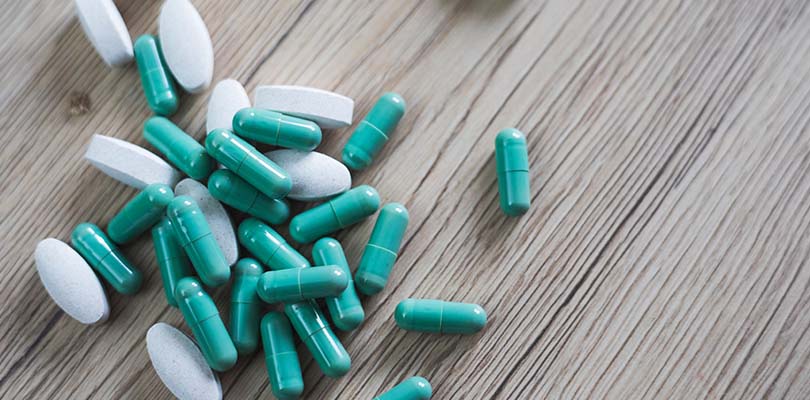Signs of a Heart Attack
As you get older, you start to recognize that health, especially heart health, isn’t a guarantee. You become more aware of certain conditions and ailments and perhaps you wonder if you are at risk for a heart condition.
If any pain occurs in your chest, your first instinct might be to assume that the pain is a heart attack, but what are the signs of a heart attack, and what should you do if it is one?
What Happens During a Heart Attack?
A heart attack, or myocardial infarction, happens when one or more of your coronary arteries become obstructed.
When a roadblock pops up in your arteries, it causes an issue because there is no other route for oxygenated blood to get to the heart. Without this oxygen, the heart is unable to work properly, so it starts to shut down.
Much like the brain, the longer the heart goes without oxygen, the worse the damage gets. Treatment needs to be immediate, otherwise, portions of the heart muscle begin to die. The damage spectrum ranges from mild to severe and heart attack damage isn’t an isolated incident – even a minor heart attack will affect you for the rest of your life.
The Danger of Plaque Buildup
You may question what causes this blockage in the arteries. According to the Heart and Stroke Foundation, more than 9 out of 10 heart attacks are caused by atherosclerosis. This is the buildup of waxy plaque on the interior wall of an artery over time.
Plaque buildups are essentially deposits made of cholesterol, fatty substances, cellular waste products, calcium, and a clotting material in the blood known as fibrin. The thicker the plaque buildup gets, the narrower the passage becomes for blood transportation.
It would be like starting out with a spacious four-lane highway and changing it down to one lane. The buildup results in a blood clot which can become so large it obstructs the flow of blood to the heart. Atherosclerosis occurs over the course of many years.
An area of plaque buildup can break open and cause a blood clot to form on the plaque’s surface, either completely or partially blocking blood flow.
Heart Attack Risk Factors
The makeup of plaque probably gives a pretty good idea for some of those at risk for a heart attack. If you suffer from any of the following, you need to start making your heart health a bigger priority:
- High blood pressure
- High blood cholesterol
- Being overweight/obesity
- An unhealthy diet
- Lack of physical activity
- High blood sugar due to insulin resistance or diabetes
- Smoking also helps accelerate the plaque buildup and cause it to grow bigger
Other factors are age – risk increases for men after 45 and women after 55, if there is a family history of heart disease, or preeclampsia (a condition that can develop during pregnancy where you see a rise in blood pressure or excess protein in the urine).
If you're losing more strands than usual or your hair's thinner than it used to be, here's what hair loss causes may be to blame.
Heart Attack Symptoms
Heed the warning from any heart attack symptoms. Symptoms range from mild to severe pain and anywhere from one symptom to several.
The most common symptom is pressure, pain, or discomfort in the chest. Your chest may feel full, heavy, or have a burning sensation. There may be other aching sensations present in your upper body, most likely the neck, jaw, shoulders, arms, and back.
Other symptoms include shortness of breath, lightheadedness, sweating, or nausea. Women and men perceive the signs differently, as women are more apt to cite other signs such as anxiety, indigestion, or back pain as one of the first signs.
What to Do During a Heart Attack
If an attack happens to you, get somebody to call 9-1-1 immediately. It is recommended that you stop any activity and either sit or lie down depending on which is most comfortable for you.
During a heart attack, you will still be responsive; the heart still beats, and blood still circulates so CPR is not required. It is a different story if the heart attack leads to cardiac arrest (the heart stops beating, and blood doesn’t circulate).
Chew and swallow aspirin (unless you’re allergic), as aspirin helps protect against heart attack and eases pain and inflammation. It is not recommended that you take acetaminophen or ibuprofen. Taking aspirin can break up the blood clot causing the heart attack. Aspirin should not be taken in lieu of proper medical care.
If you are having a heart attack, you will want a proper diagnosis and medical direction on how to take care of your heart going forward. What you think is a heart attack may also be a symptom of another ailment such as angina or anxiety. No matter what, get yourself checked out.
How to Prevent a Heart Attack
In order to protect your heart, you need to lower your risk factors to help prevent a heart attack. Be heart-smart and alter your lifestyle.
Commit to eating healthier, engaging in physical activity on a consistent basis, giving up vices such as smoking, getting your stress under control, and managing your weight. Be sure to treat related conditions such as high blood cholesterol, high blood pressure, chronic kidney disease and peripheral artery disease.
Your heart doesn’t operate by itself; it has a team of factors which add to its health or detriment.
Here’s a little food for thought: Keep a list of your medications and allergies in your wallet – it is beneficial to medical personnel in the event of an emergency. You will also want to include your health care provider’s contact information as well as your emergency contact.
Don’t underplay anything related to your heart. Eat well, get your cardiovascular system checked out, and be sure to stay active. Committing to keeping your heart happy will help you live a much healthier life.







